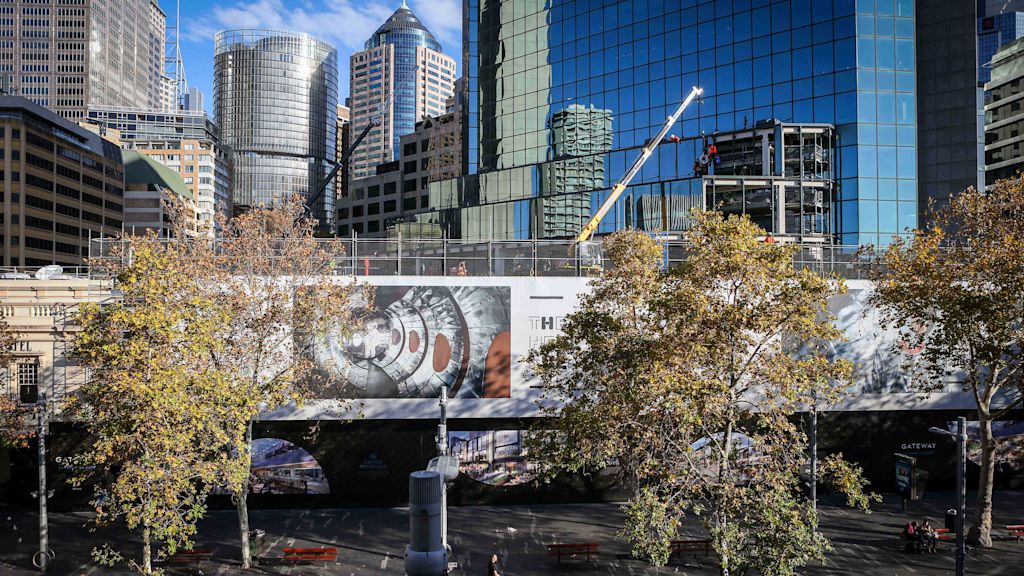In an Australian-first, the City of Sydney will incorporate energy efficiency and renewable energy targets in development applications – ensuring buildings are part of the transition to net-zero emissions.
Last night Council unanimously endorsed controls that require applications for new office buildings, hotels and shopping centres and major redevelopments to comply with minimum energy ratings from January 2023 and achieve net-zero energy use from 2026.
The measures are expected to save more than $1.3 billion on energy bills for investors, businesses and occupants from 2023 to 2040, and help the City of Sydney meet its target of net-zero emissions by 2035.
“Commercial office space, hotels and apartment buildings contribute 68% of total emissions in the City. If we’re to meet our target of net-zero emissions by 2035, we need the building sector to play its part,” the Lord Mayor said.
“These new controls, four years in the making, require developers to reduce emissions through increased energy efficiency, on-site renewable energy production and offsite renewable energy procurement. They are ambitious but achievable and provide a clear pathway for developers to improve energy performance and transition to net zero buildings.
“Working with our major developers and building owners to address the climate crisis could not be more important. Not only will this program help us reach our target of net-zero emissions by 2035, it will provide energy savings of more than $1.3 billion for investors, businesses and occupants across Greater Sydney.”
The City of Sydney’s new planning controls will combine energy efficiency and the use of onsite and offsite renewables to move buildings towards net zero energy use.
Including the option to use offsite renewable energy purchases is another first for local planning controls in Australia.
Final amendments were made to the proposal after the City of Sydney reviewed feedback during the public exhibition late last year.
The amendments provide more clarity for developers in the structure and operation of the controls, particularly for projects involving the refurbishment of existing buildings. The amendments also make it easier for existing buildings to demonstrate how they are moving towards net-zero emissions.
Lord Mayor Clover Moore said the ambitious green building performance standards, a first for any Australian local council, have been created with support from developers, investors, industry bodies, consultants and government agencies.
Development of the controls received national and state awards from the Planning Institute of Australia as well as from Local Government NSW and the Greater Cities Commission.
Six major developers, including Stockland, Frasers, Lendlease, Crown Group, Dexus and Mirvac, wrote to the City of Sydney supporting the proposed development standards.
“The action we take locally will help reduce emissions and contribute to a positive business recovery for Greater Sydney,” the Lord Mayor said.
“The performance standards and evidence base can be used by all councils across Greater Sydney and will support investment in renewable energy and create jobs in regional areas, as we have already done through our investment in wind farms and solar farms in Inverell, Nowra and Wagga Wagga.
“The climate challenge is one that we can only meet with concerted action. The more we can work together and exchange information, knowledge and experiences, the greater our ability to achieve net-zero emissions.
“As communities across the state face the daunting task of flood-recovery, with devastating bushfires lingering in recent memory, we all need to be doing more to respond to the climate crisis. The Government should extend this work state-wide.”
The new energy targets have the backing of leading developers, property owners and industry groups.
The measures are expected to deliver substantial financial benefits. Annually office owners will save $2,750 per 1,000 square metres of floor area and hotel owners $170 per hotel room.
There are also additional public benefits and savings in health, energy network and emissions costs, worth around $1.8 billion. The planning controls also support the NSW Government's renewable energy zones through investment and create demand for jobs and new skills in energy efficiency.
The new performance standards address requirements in the Greater Sydney region plan and respond to local, state and industry goals, including the NSW net zero plan and electricity strategy, district plans to reduce carbon emissions and sustainability actions in local planning.
Further details of the of the changes can be found on the City of Sydney’s website: cityofsydney.nsw.gov.au/policy-planning-changes/strategic-review-net-zero-energy-development
